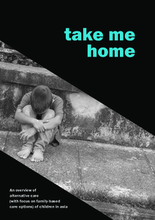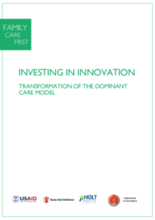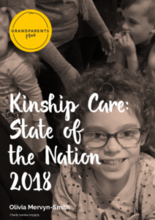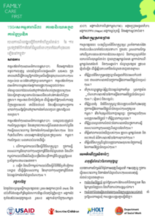Displaying 241 - 250 of 576
This article from the Child Law Practice Today July/August 2017 Issue on Kinship Care summarizes seven steps to create a kin-first culture—one in which child welfare stakeholders consistently promote kinship placement, help children in foster care maintain connections with their families, and tailor services and supports to the needs of kinship foster families.
A First Nations child welfare organization has prioritized further understanding of reunification and parenting, including identification of successes and barriers to reunification, and service needs within communities. These priorities were addressed with a community-based participatory research model and guided by a Research Advisory.
In order to define what support is necessary for the successful emancipation of young people leaving alternative care in Serbia, this study of 150 young people in care aims to analyse both their preparedness for leaving alternative care, and whether the type of placement (kinship, foster, or residential) makes a difference to the level of preparedness.
This small pilot study to explores what is currently taught to future doctors about children in out-of-home care (OOHC) and found that there is no formal teaching about these children in the University of Melbourne Doctor of Medicine course.
This report marks a critical step in compiling comparable data and information about children in out-of-home care in Asia, defining our understanding of the continuum of care options available and metaphors to identify the gaps, challenges, strengths and opportunities within the child care systems in 10 identified Asian countries.
The purpose of this study was to assess the challenges affecting orphans and vulnerable children (OVCS) in Embu County.
This study and documentation of existing reintegration and alternative family care services in Cambodia was designed to build the capacity of existing service providers to take emerging good practice to scale as an increased number of residential care institutions transition.
This pilot study reports the baseline data of a prospective longitudinal study examining the educational achievements of grandchildren being raised by grandparents in parent absent homes.
The Kinship Care: State of the Nation 2018 survey is the largest survey ever of kinship carers in the UK. As in previous years, it shows that many carers aren't getting the support they need to enable children to thrive.
Family Care First (FCF) supported the study and documentation of existing reintegration and alternative family care services provided by seven implementing partners in Cambodia. This brief includes an outline of key findings of the study and concludes with recommendations based on those findings.






